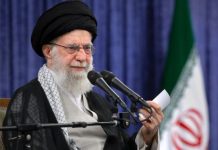Mian Zunair Ishaq
The recent terrorist attack in Pahalgam, Kashmir, has once again heightened tensions between India and Pakistan, drawing attention to the fragile stability of South Asia. Following the attack, India swiftly attributed responsibility to Pakistan-based militant groups, following a pattern seen in previous incidents of cross-border terrorism. This episode particularly evokes memories of the 2019 Pulwama attack, in which a suicide bombing claimed the lives of 40 Indian soldiers and brought the two nuclear-armed neighbors to the brink of war. In response to Pulwama, India launched airstrikes within Pakistan’s territory, specifically targeting what it claimed to be terrorist infrastructure in Balakot. Pakistan, in turn, retaliated by shooting down an Indian MiG-21 fighter jet and capturing pilot Wing Commander AbhinandanVarthaman. However, Pakistan’s subsequent decision to return the captured pilot to India as a goodwill gesture was widely interpreted as a move to de-escalate the crisis and project an image of responsible behavior before the international community. At that time, numerous analysts criticized India for allegedly exploiting the situation for domestic political gains, thereby exposing its aggressive posture on the international stage. The current situation surrounding the Pahalgam attack bears notable similarities to the Pulwama crisis, yet historical precedents suggest that a full-scale war remains unlikely between the two states.
The international response to the Pahalgam attack has largely mirrored previous reactions to India-Pakistan crises. Major global powers such as the United States, China, the United Kingdom and the European Union have urged both nations to exercise maximum restraint. The United States, emphasizing the importance of regional stability, has called for peaceful dialogue and greater cooperation against terrorism, while explicitly discouraging any military escalations. China, maintaining its traditionally close ties with Pakistan, has advocated for bilateral dialogue between New Delhi and Islamabad, reiterating its support for Pakistan’s stance on regional security. The United Kingdom and European Union have similarly expressed grave concerns about the potential for escalation and have recommended diplomatic solutions over military responses. International media outlets have extensively highlighted the risks posed by any renewed conflict between India and Pakistan, particularly given the nuclear capabilities of both nations. Analysts agree that the severe consequences of nuclear escalation act as a significant deterrent, rendering a full-scale war economically, politically and morally untenable for both countries.
One of the primary reasons a full-scale war remains improbable is the doctrine of Mutual Assured Destruction (MAD), a strategic reality that has defined India-Pakistan relations since both nations became nuclear powers. The concept of MAD asserts that any nuclear exchange would ensure the total destruction of both the attacker and defender, thereby serving as a powerful deterrent against the initiation of large-scale hostilities. This deterrence has historically restrained both India and Pakistan during critical confrontations, including the Kargil War of 1999, the 2001–2002 military standoff following the Indian Parliament attack and the Balakot airstrikes of 2019. In each instance, despite the intensity of the crises, neither state escalated to the point of full-scale conventional war, demonstrating a shared understanding that the survival of their populations and nations must take precedence over nationalist fervor or military ambition.
In addition to nuclear deterrence, longstanding agreements like the Indus Waters Treaty (IWT) of 1960 have contributed to relative restraint between India and Pakistan. Brokered with the assistance of the World Bank, the IWT governs the sharing of the Indus river system’s waters, allocating control of the Ravi, Beas and Sutlej rivers to India and the Indus, Jhelum and Chenab rivers to Pakistan. Despite numerous conflicts, the treaty has endured for over six decades, symbolizing a rare and crucial avenue of cooperation between the two adversaries. Any attempt by India to violate or abandon the treaty could provoke severe international backlash and potentially destabilize the region further. In such a scenario, Pakistan would likely resort to legal recourse through international forums, leverage its diplomatic ties with key allies such as China and, in an extreme case, consider military options if its water security were critically endangered. Thus, the enduring relevance of the Indus Waters Treaty serves as another safeguard against the outbreak of large-scale hostilities.While the potential for limited, localized conflict remains, particularly along the volatile Line of Control (LoC), the likelihood of a full-fledged conventional war is minimal. Tactical operations, cross-border skirmishes and even limited aerial strikes such as the 2019 Balakot action may occur without escalating into broader warfare. This restraint is driven by several factors: the devastating economic consequences of war, the immediate diplomatic intervention expected from influential actors like the United States, China and the European Union and the omnipresent risk of nuclear escalation. In an era where economic interdependence and global connectivity shape national interests, neither India nor Pakistan can afford the political isolation and financial ruin that a major war would precipitate.
Given this context, the future path for India and Pakistan should be firmly rooted in diplomacy and peaceful coexistence. Historical experience demonstrates that wars, rather than resolving disputes, exacerbate suffering, weaken economies and set back national development by generations. The devastation wrought by major 20th-century conflicts such as the First and Second World Wars, as well as the Cold War’s persistent state of militarized tension, underscores the imperative of avoiding armed confrontation. Instead, both nations should invest in diplomatic engagement, working sincerely toward resolving longstanding disputes like Kashmir through negotiation and conflict-resolution mechanisms. Confidence-building measures (CBMs) that promote transparency, reduce mistrust and foster mutual understanding are essential steps toward lasting peace.Moreover, economic cooperation holds immense potential as a stabilizing force between India and Pakistan. Increasing bilateral trade, joint investment initiatives and regional infrastructure projects could significantly enhance prosperity for both nations, thereby creating mutual stakes in each other’s stability. The dividends of economic growth are far greater than the fleeting gains of military victories and both nations must recognize this reality. Human development must also be prioritized over military expenditures. Investments in education, healthcare and poverty alleviation would not only enhance domestic welfare but also reduce the socio-political conditions that breed extremism and conflict. Encouraging cultural exchanges, academic partnerships and grassroots initiatives for people-to-people contact can further break down stereotypes and promote a narrative of shared humanity.
India and Pakistan must internalize the lessons of history. The notion that wars strengthen national pride is a dangerous fallacy; history repeatedly shows that conflict weakens nations while peace fosters strength, resilience and prosperity. The future of South Asia hinges on cooperation, not confrontation. The Pahalgam attack, tragic as it is, must not be allowed to derail efforts at peacebuilding. Both governments must exercise prudent, visionary leadership to navigate this crisis and avoid plunging the region into another cycle of violence. Given the nuclear overhang, the immense economic stakes and the unequivocal disapproval of the international community toward military escalation, war is not a viable option. Diplomacy, dialogue and a commitment to regional cooperation represent the only realistic and responsible path forward for India and Pakistan.
MianZunairIshaq
Student of International Relations
Advocate for Peace & Regional Cooperation

















